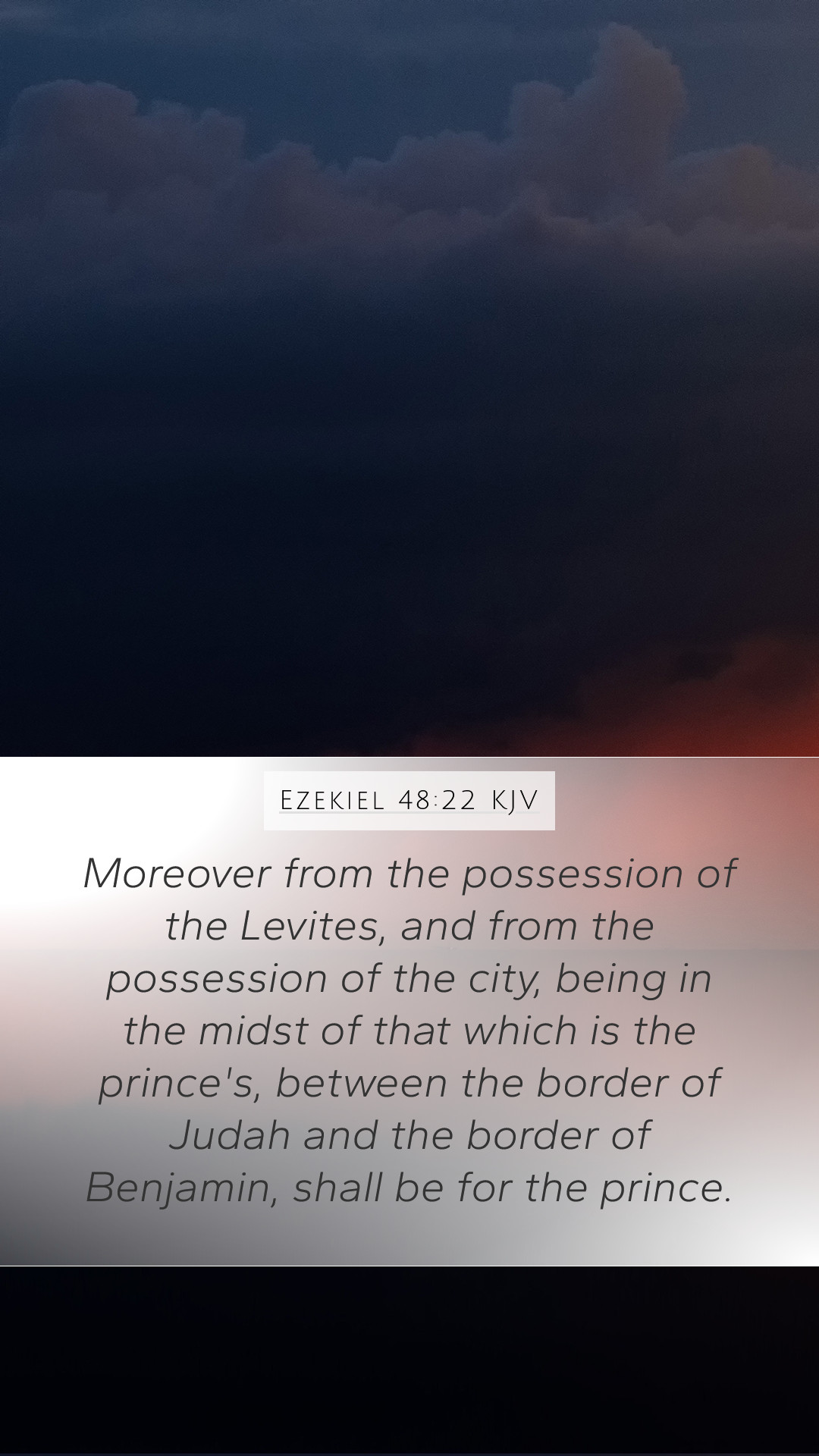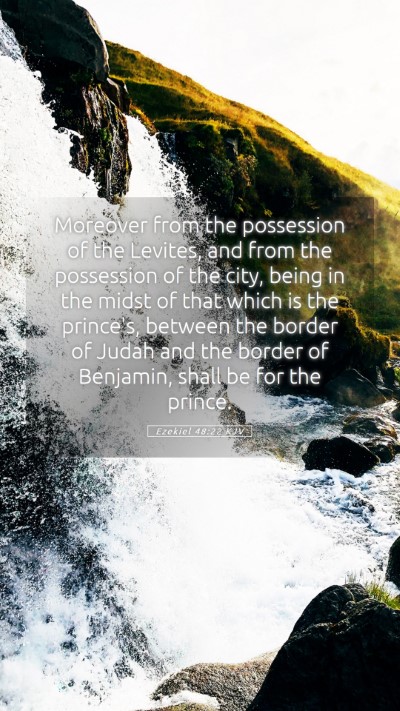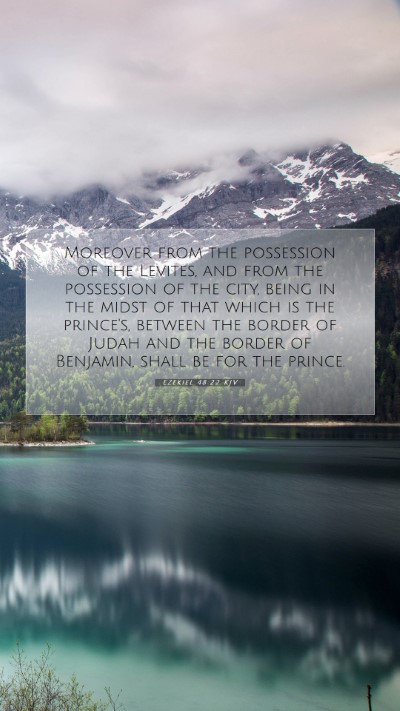Ezekiel 48:22 - Understanding the Verse
Bible Verse: Ezekiel 48:22 - “And the residue shall be for the prince, on the one side and on the other of the holy oblation, and of the possession of the city, over against the five and twenty thousand of the oblation toward the east border, and westward over against the five and twenty thousand toward the west border, over against the portions for the prince. And it shall be the holy oblation; and the sanctuary of the house shall be in the midst thereof.”
Verse Interpretation and Analysis
This passage from Ezekiel discusses the division of the land among the tribes of Israel, particularly concerning the role of the prince and the allocation of land within the holy city. Understanding this verse involves several layers of meaning that can be enriched by biblical commentary.
Insights from Public Domain Commentaries
Matthew Henry's Commentary
Matthew Henry outlines that this verse reflects God's promise to the prince and the importance of his role within the spiritual governance of Israel. He emphasizes the concept of religious leadership and stewardship over what belongs to God. The allocation to the prince signifies a blend of sacred and secular authority, marking a transition toward a structured society reflecting God’s order.
Albert Barnes' Notes on the Bible
Albert Barnes highlights the geographical and political implications of this allocation. The land prepared for the prince is intended as a space where he could conduct his duties while ensuring the sanctity of the holy oblation remains intact. The significance of this arrangement is twofold: it emphasizes the divine right of the leaders and indicates the unity of spiritual and temporal powers in the worship of God.
Adam Clarke's Commentary
Adam Clarke focuses on the concept of the “holy oblation” as a setting for the sanctuary of the house amidst the lands allocated. His interpretation suggests that the designated land for the prince must also be viewed as a sacred space, emphasizing that leadership in the community must be closely tied to worship and reverence for God. Clarke emphasizes the need for leaders to maintain a humble spirit while fulfilling their roles.
Key Themes and Concepts
- Divine Right and Leadership: The verse encapsulates the theme of God establishing authority in governance, showing that earthly leaders are appointed by divine will.
- Separation of Sacred and Secular: The portions of land assigned highlight the balance that must exist between administrative duties and spiritual devotion.
- Community and Worship: The location of the prince's land near holy areas indicates that community leaders are expected to lead through devotion and accountability to God.
Related Bible Verses and Cross References
- Ezekiel 45:1 - Discusses the division of the land similar to Ezekiel 48:22.
- Numbers 34:1-29 - Provides guidelines for land distribution.
- Jeremiah 33:15 - References the righteous branch that shall spring up, relating to the concept of rightful leadership.
Application and Relevance Today
This verse serves as an essential teaching about the role of leadership in spiritual communities. In terms of Bible study insights, it encourages those in leadership positions to embody principles of righteousness, responsibility, and humility.
For Bible Study Groups
Understanding this verse is crucial for bible study groups as it provides an opportunity to discuss the implications of leadership in faith communities. It raises questions about how our modern leaders reflect divine principles and how the allocation of resources can mirror God’s justice.
Conclusion
In summary, Ezekiel 48:22 presents a profound model for understanding the roles of leadership and worship in the community of faith. The insights offered by prominent commentaries provide a comprehensive perspective on the significance of this passage. By analyzing the themes of divine authority, sacred space, and the community's responsibilities, we find applicable lessons for today’s spiritual and communal leaders.


